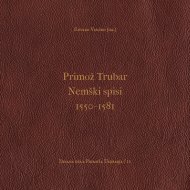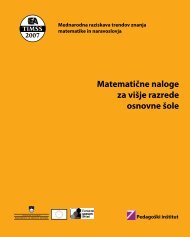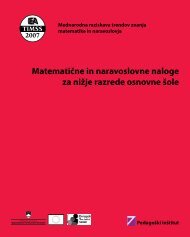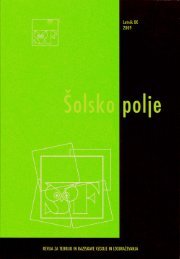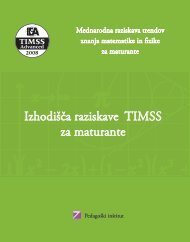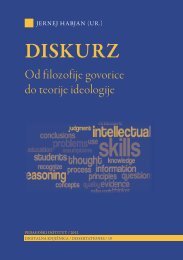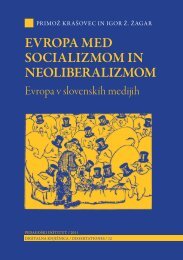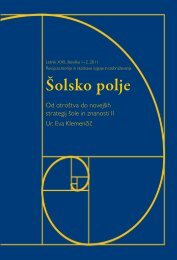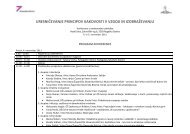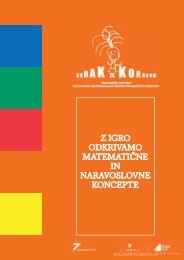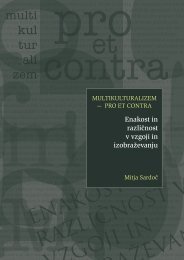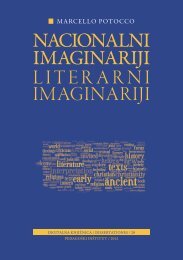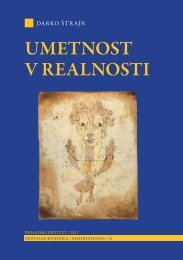Šolsko polje, letnik XX, številka 5-6, 2009: Vloga ... - Pedagoški inštitut
Šolsko polje, letnik XX, številka 5-6, 2009: Vloga ... - Pedagoški inštitut
Šolsko polje, letnik XX, številka 5-6, 2009: Vloga ... - Pedagoški inštitut
You also want an ePaper? Increase the reach of your titles
YUMPU automatically turns print PDFs into web optimized ePapers that Google loves.
88 ŠOLSKO POLJE LETNIK <strong>XX</strong> ŠTEVILKA 5/6Karadžić has been (only) the president of Republic Srpska (and not a warcriminal), and now they have arrested him. While employing this particularprinciple, TS contributes to the masking of the responsibility of the Serbs forthe crimes committed in BH. It continues to cultivate the myth of an innocentSerbia, propagating the thesis that Serbs have always been victims of someexternal enemy, conspiring to annihilate them. In that way, Karadžić is positionedas someone who acted strongly to revenge past wrongs. TS attempts toerase the Serbian crimes in BH that were committed in the name of GreaterSerbia, with the political, military, economic support of the majority of theSerbs (Čolović, 2002; MacDonald, 2002; Popov, 2000; Repe, 2008).(C) Abstraction/PersonalizationWhat types of abstraction and generalization dominated the analyzed TSnews programs? The arrest of Karadžić was generalized in two ways. First,the already limited coverage of Karadžić’s war crimes was portrayed in »arelative way«, framed in terms of moral equivalence (see example 3) anddescribed not as intentional acts but as »accidents.«3. A journalist: What war crimes did Radovan Karadžić commit? What ishe responsible for?Vladislav Jovanović: We have to know that it wasn’t only Karadžićwho’s been involved. Other presidents were participating, too, butthey were not sent to The Hague. /.../ Accidents happened on all sides…and these have much deeper causes. (July 23 2008, »RadovanKaradžić – Myth and Reality«)In the above response, the source implicitly acknowledged that Karadžićis guilty of crimes, but he has generalized them (»others were involved«)and relativized them (»in a war, this kind of thing happens – everyonewas doing it«). This practice remains a crucial strategy for representingwar crimes (for more, see Wodak, 2006). Moreover, the source used theterm »accident«, which is a typical euphemism in Serbian nationalistic discourse(Luković, 2002): it transposes criminal acts into the unintentionalrealm of chance, thereby refusing to acknowledge that war crimes werealso committed by Serbs. The use of the notion »an accident« is illustrative– since an accident can happen without an intentional cause by someexternal »objective« force. Because the journalist did not challenge the re-



